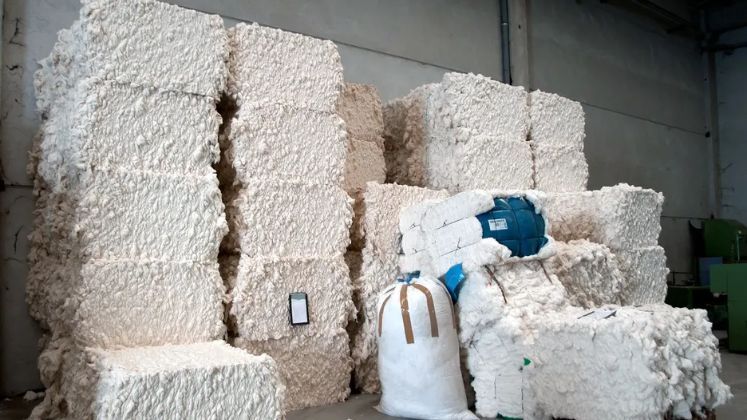
Leading textile millers and industry associations have called on the Government to withdraw the 2 per cent advance income tax (AIT) imposed on cotton imports, warning that the move could threaten the survival of numerous factories.
During a press conference organised by the Bangladesh Textile Mills Association (BTMA) at the Gulshan Club in Dhaka, industry leaders expressed strong opposition to the tax, which they say was introduced without prior consultation with stakeholders. BTMA President Showkat Aziz Russell emphasized the significant impact of the tax on business viability, warning that failure to revoke it could lead to widespread factory closures.
“The Government should not do business everywhere without considering the repercussions. This 2 percent AIT is causing massive damage to the sector,” Russell stated.
Industry representatives highlighted that the additional tax would increase production costs by 7 to 8 per cent, further squeezing profit margins. Hossain Mehmood, chairman of the Bangladesh Terry Towel and Linen Manufacturers and Exporters Association, warned that the tax would intensify financial pressures on manufacturers.
Critics also pointed out that the decision was made unilaterally, without industry input. Amal Podder, vice-president of the Bangladesh Knitwear Manufacturers and Exporters Association (BKMEA), criticized the Government’s lack of consultation, stating, “Such critical decisions should involve industry leaders to ensure sustainable growth.”
The call for the tax’s rollback comes amid mounting challenges faced by Bangladesh’s primary textile sector, which boasts an investment of approximately $23 billion. The industry is grappling with rising yarn import costs, low gas pressure, high bank interest rates, declining working capital due to currency devaluation, and looming US tariffs.
Md Badsha Mia, managing director of Badsha Textiles Ltd, lamented that Government policies have further burdened the sector. He pointed out reductions in incentives, from 25 per cent to just 1.2 per cent, along with sharp increases in gas prices (Tk 32 per unit from Tk 4), bank interest rates rising to 15 per cent, and a 1 per cent source tax.
The industry has also suffered from a 36 per cent devaluation of the Bangladeshi taka against the US dollar over the past three years, causing severe capital shortages. The taka’s exchange rate has moved from Tk 85 per USD before Russia-Ukraine conflict in early 2022 to Tk 122 today, eroding working capital for many millers, traders, and importers.
Compared to neighbouring India, where Government incentives have bolstered the textile sector, Bangladeshi millers feel disadvantaged. Indian Government policies enable Indian millers to sell yarn at Tk 15 less per kilogram, giving them a competitive edge. This has led to increased interest among local garment exporters in sourcing Indian yarn.
“While neighboring countries continue to incentivize their textile industries, Bangladesh’s policies are discouraging growth and threatening the survival of many units,” said BTMA Vice-president Md Saleudh Zaman Khan.
Industry leaders stressed that the restrictive policies are undermining the sector’s competitiveness, with some warning of imminent closures if conditions do not improve. Razeeb Haider, a BTMA director, urged the Government to reconsider the 2 per cent AIT immediately, citing the influx of cheaper Indian yarn due to relaxed policies.
Md Khorshed Alam, another BTMA director, highlighted that approximately $18 billion of the sector’s $23 billion investment comes from the banking sector. He called for better gas supply management, urging authorities to curb the 18 per cent gas pilferage to ensure industrial stability.
While recent Government efforts have increased gas supplies to the industry, industry representatives remain concerned about the overall policy environment and its impact on Bangladesh’s competitive edge in the global textile market.






